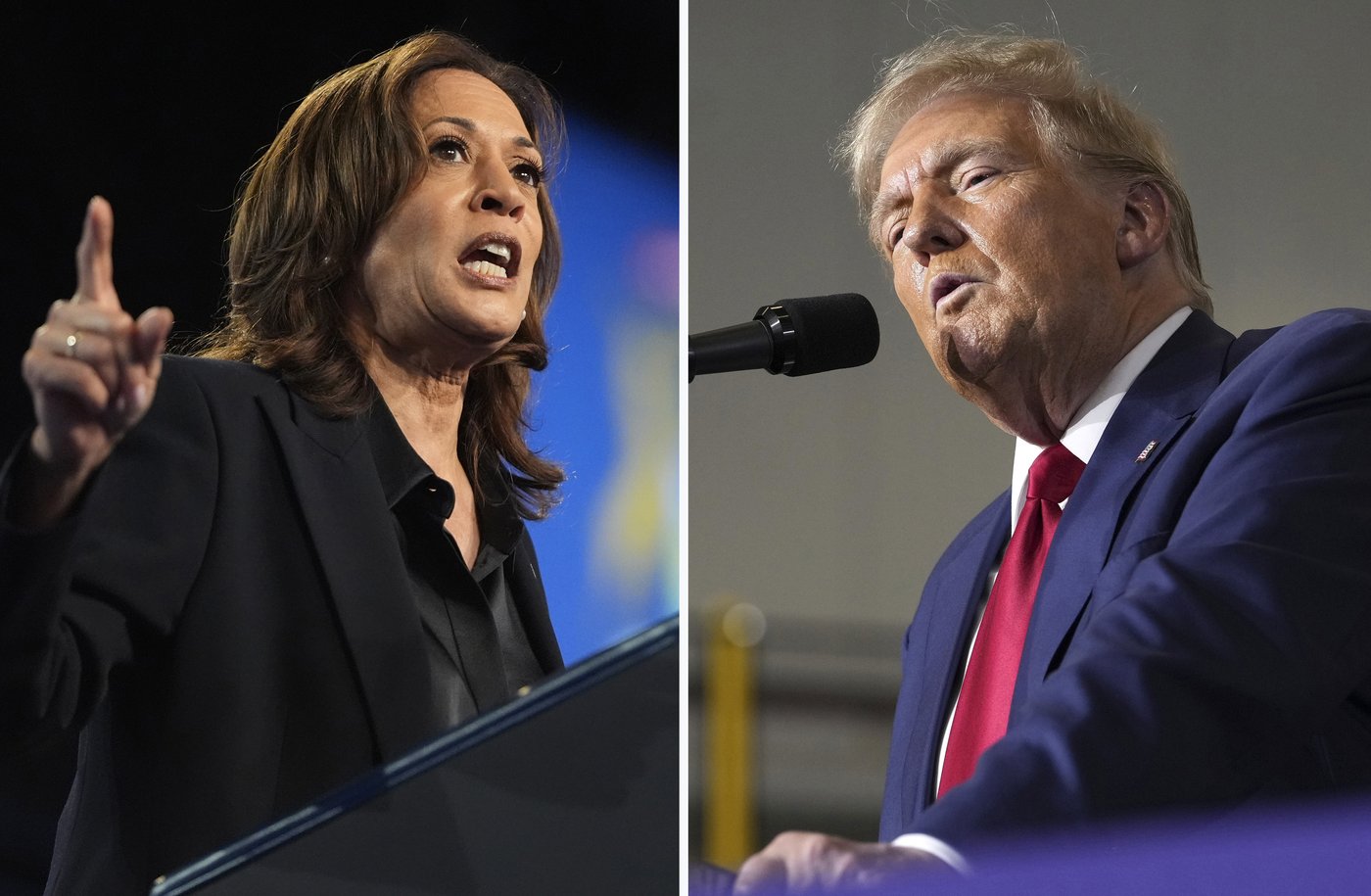Canada
‘Sleeping with an elephant:’ What will a Republican or Democrat win mean for Canada?

WASHINGTON — Pierre Trudeau famously described living next to the United States as “sleeping with an elephant,” a sentiment his son is intimately aware of amid this year’s tumultuous and polarized American election.
Prime Minister Justin Trudeau has likely reflected on his father’s words about Canada’s proximity to the U.S.: “one is affected by every twitch and grunt.”
The U.S. is Canada’s closest neighbour and largest trading partner and who wins the White House in November will be in charge during the review of the Canada-U.S.-Mexico agreement in 2026.
While Vice-President Kamala Harris and former president Donald Trump approach trade differently, both are selling protectionist policies that could cause uncertainty for Canada.
“We’ve done this before,” Trudeau said recently when asked about both presidential candidates saying they’d push the review of the crucial trade pact.
“We can do it again if we need to.”
Harris has been campaigning on her vote against the trilateral agreement and has made comments in support of the Biden administration’s Buy American procurement rules.
Meanwhile, Trump’s professed love of tariffs is the centrepiece of his agenda. He previously proposed a 10 per cent across-the-board tariff — pushing it upwards of 50 per cent in recent interviews.
“To me the most beautiful word in the dictionary is ‘tariff’,” Trump said Tuesday.
The rhetoric rings alarm bells north of the border. More than 77 per cent of Canadian exports go to the U.S and 60 per cent of Canada’s gross-domestic product is derived from trade.
The Canadian Chamber of Commerce earlier this month released a report suggesting Trump’s 10 per cent tariffs would reduce the size of the economy between 0.9 and one per cent, resulting in around $30 billion per year in economic costs. Things would be even worse if other countries retaliated with tariff walls of their own.
Trump’s first administration demonstrated how vulnerable Canada is to America’s whims when the former president scrapped the North American Free Trade Agreement.
Negotiation of CUSMA, commonly dubbed “the new NAFTA,” was a key test for Ottawa following Trump’s victory.
Deputy Prime Minister Chrystia Freeland called the updated trilateral pact a “victory for all Canadians,” and experts say it was more moderate than Trump originally threatened.
But Trump’s trade representative Robert Lighthizer critically recounted the renegotiation, writing in his book that at one point “NAFTA was hanging on by a thread.”
“With Trump in charge he’s definitely a very volatile individual,” said Laura Dawson, an expert on Canada-U. S. relations and the executive director of the Future Borders Coalition.
“And his affect global stability and security and international relations with the United States are going to be significant — and not in a good way.”
Canada has taken lessons from his first presidency. Trump followed a fairly orthodox Republican trade agenda punctuated by explosive bursts of personal attention, Dawson said. He handed most responsibility for the trade relationship to a more predictable Lighthizer.
Alec Beck, chairman of the fifth congressional district for the Republican party of Minnesota, said he believes talks about Trump as an isolationist are overstated. Beck, whose state shares an 885-kilometre border with Canada, said both countries must work together and tariffs are a bad idea.
“They might feel good but it’s a sugar high,” the Republican said earlier this month.
If Harris wins, there will be more normal relations based on established patterns and rules, said Aaron Ettinger, a politics professor at Carleton University in Ottawa.
It’s expected the vice-president will follow the path laid by President Joe Biden, which brought some stability but not much change. He largely kept Trump’s tariffs in place, despite promises to reverse them.
Biden also signed an executive order to revoke the permit for the Keystone XL, which would have transferred oil from Alberta to Nebraska.
Dawson said she expects a Harris administration would continue nationalist and protectionist actions.
Harris has campaigned on returning manufacturing jobs to the U.S. It is a great slogan and bumper sticker, Dawson said, “but it’s terrible if you are Canada.”
The impact of these policies on Canada-U. S. relations might not be clear to voters, who get behind the America first slogans.
Jeremy Washington says he believes electing the Republican presidential candidate would help both countries. The 27-year-old, who was at a recent Trump rally in Butler, Pa., said change is needed “because the things that have ruined … America have also affected Canada, like unfettered immigration, high housing prices, the currency seeming like its worthless.”
Experts have warned the trade and tariff threats will also bring costs for Americans.
Dawson cautioned Trudeau’s team during a cabinet retreat in August that no matter who wins the U.S. presidency, Canada will have to work harder to maintain existing benefits of integrated trade and travel.
Canada will rely more on one-off lobbying and advocacy to get special treatment as both Republicans and Democrats move away from the security of historical trade deals.
Experts and business groups have been sounding the alarm about Canada’s changing role to its closest ally. Many say the relationship between the two countries shifted from being strategic to transactional as Canada became less critical compared with other places in the world.
A report from the independent Expert Group on Canada-U. S. Relations, which includes former diplomats, policy advisers and business leaders, warned Ottawa was “sleepwalking” ahead of the 2026 trade pact review. That July report described Trump’s current relationship with the Liberal government as “chilly at best.”
Dawson said Canadian concerns won’t be appeased in the next few weeks ahead of the election. It won’t be clear what either camp really has in store for the Canadian relationship until long after November.
“I am much more concerned in how we are in this trajectory, in these falling dominoes, that are going to be moving through that new NAFTA review.”
